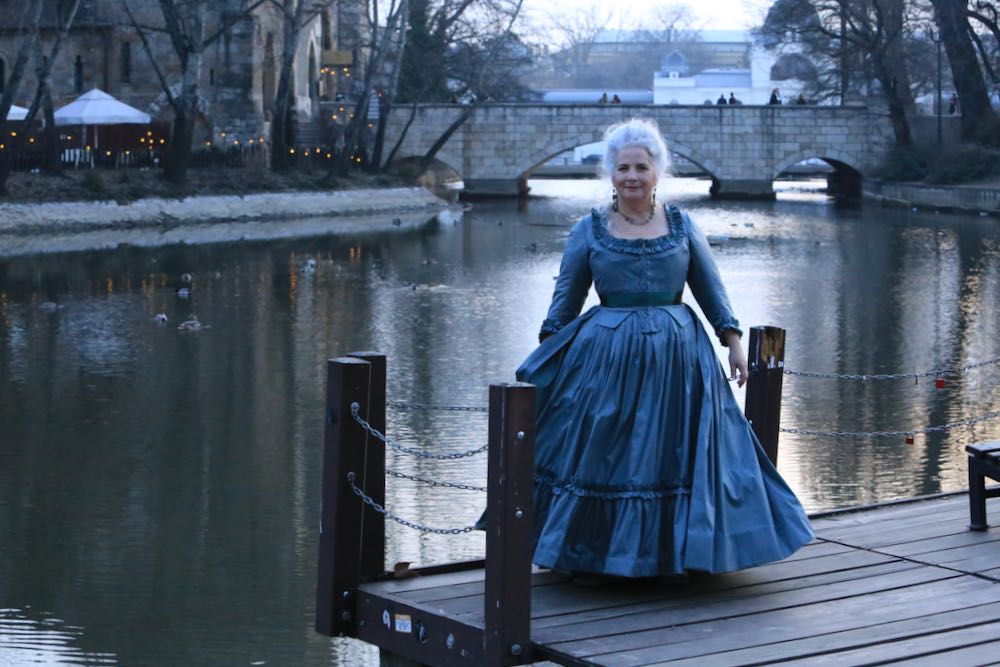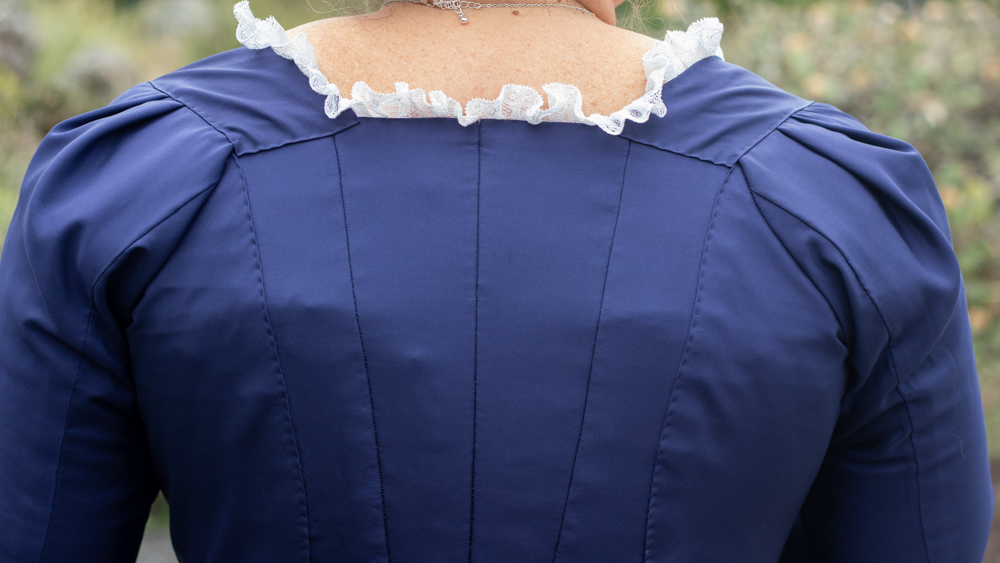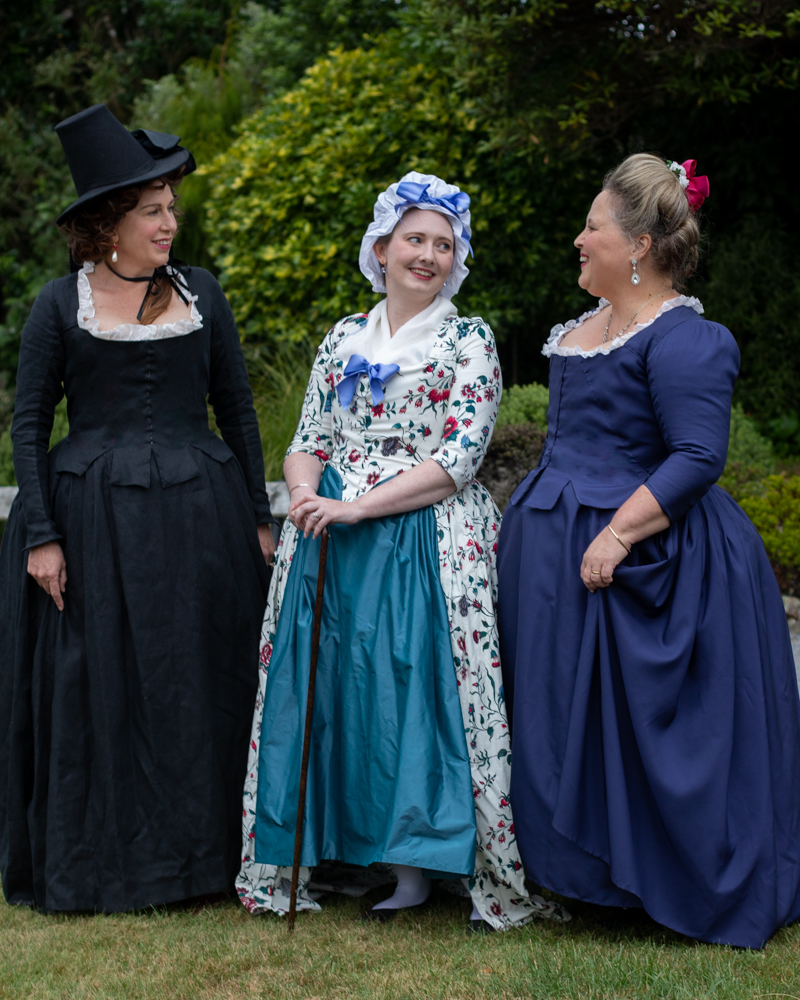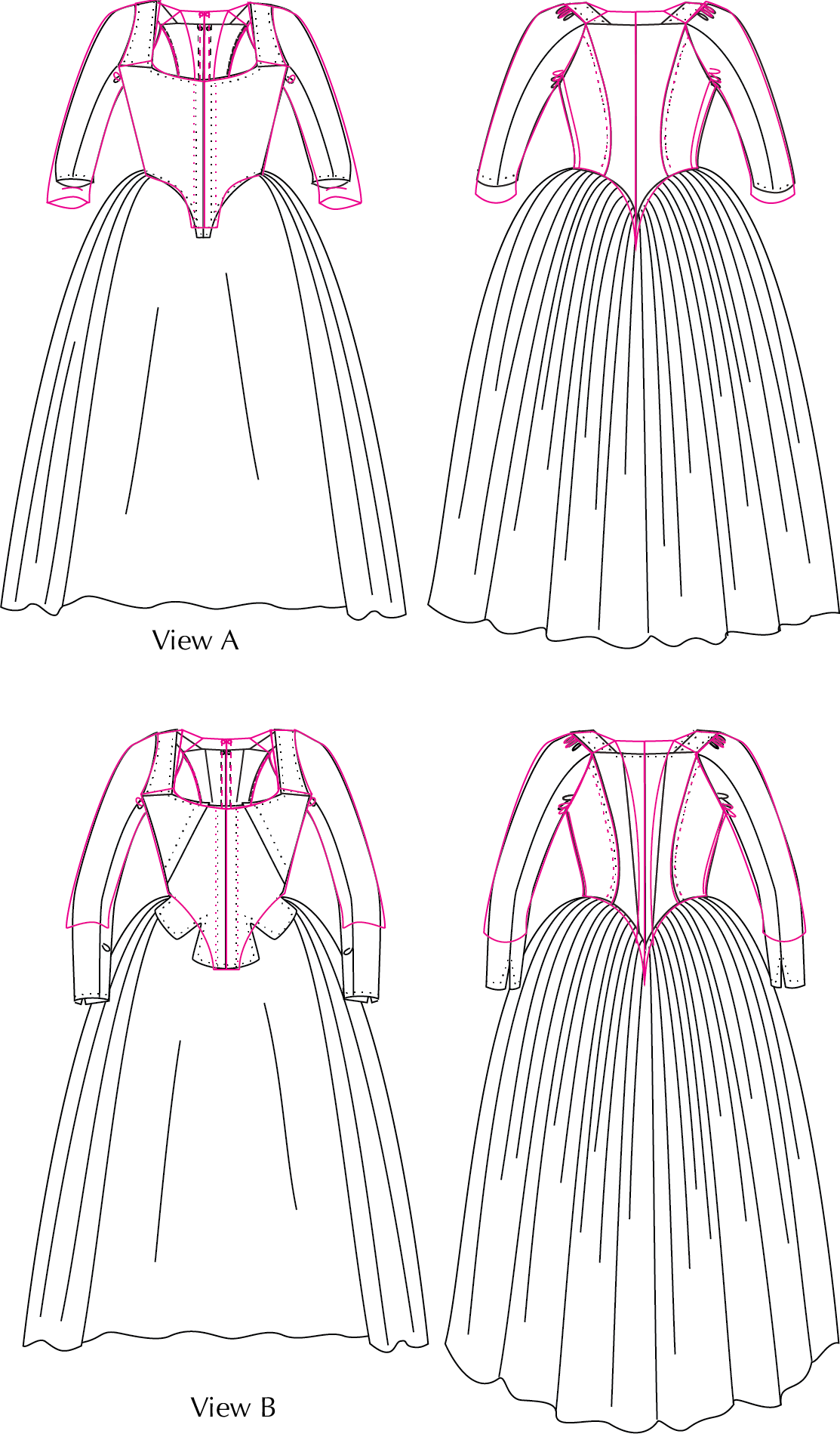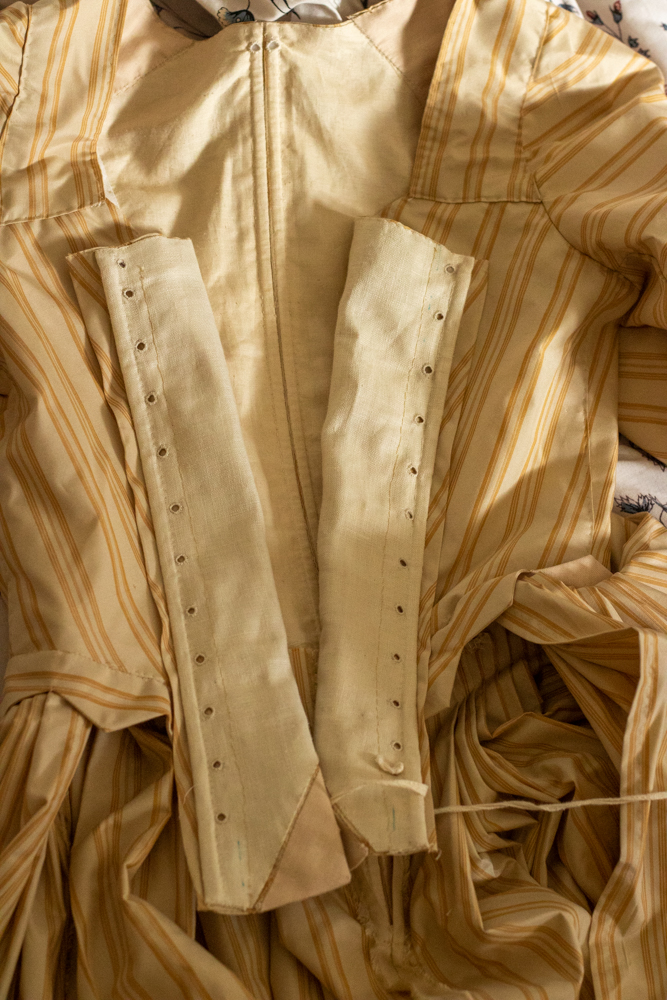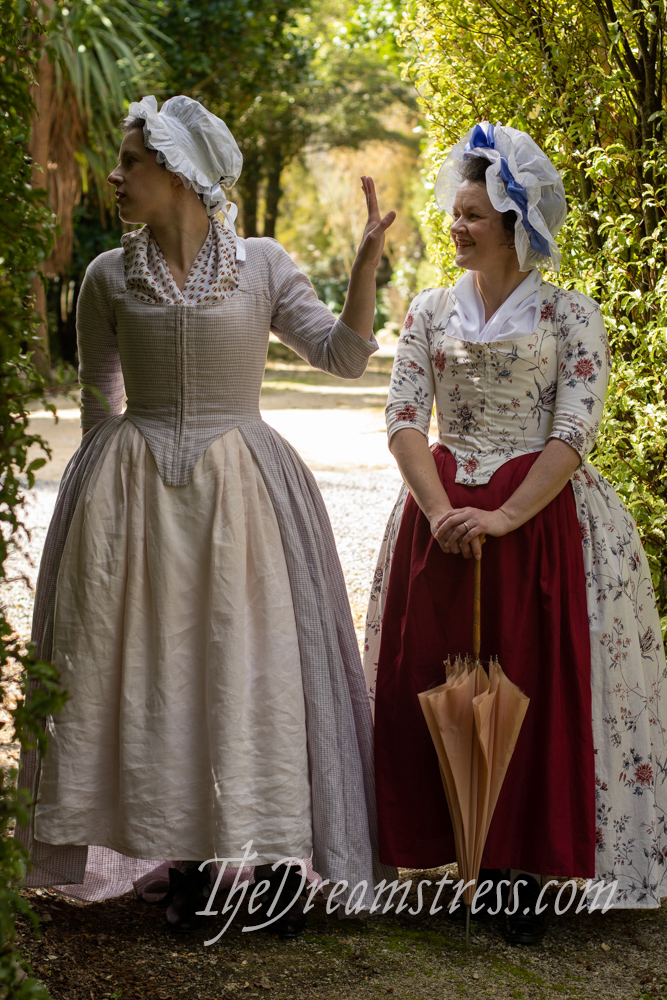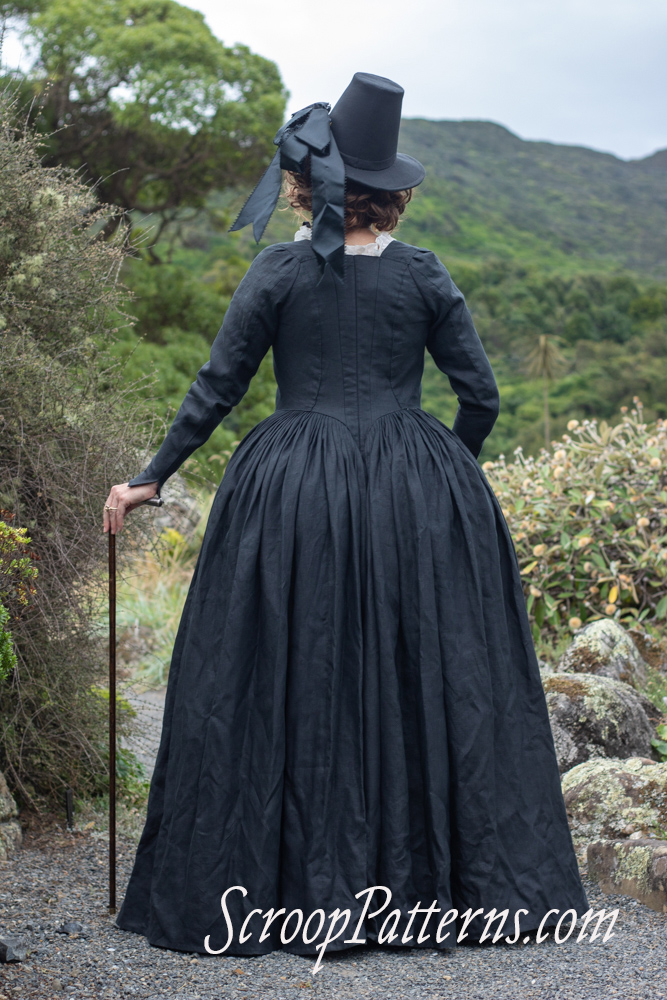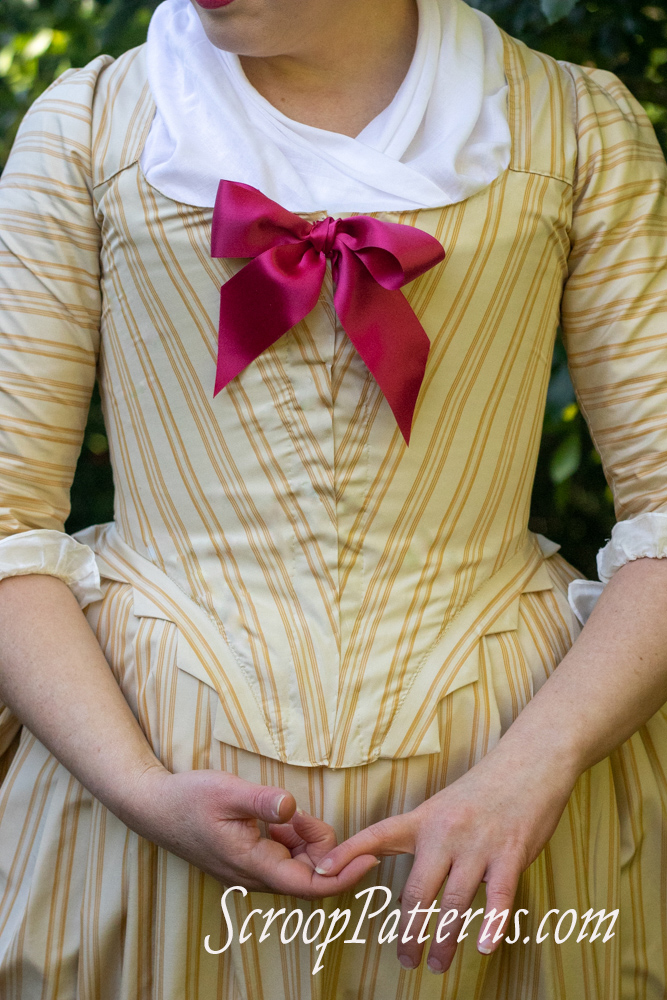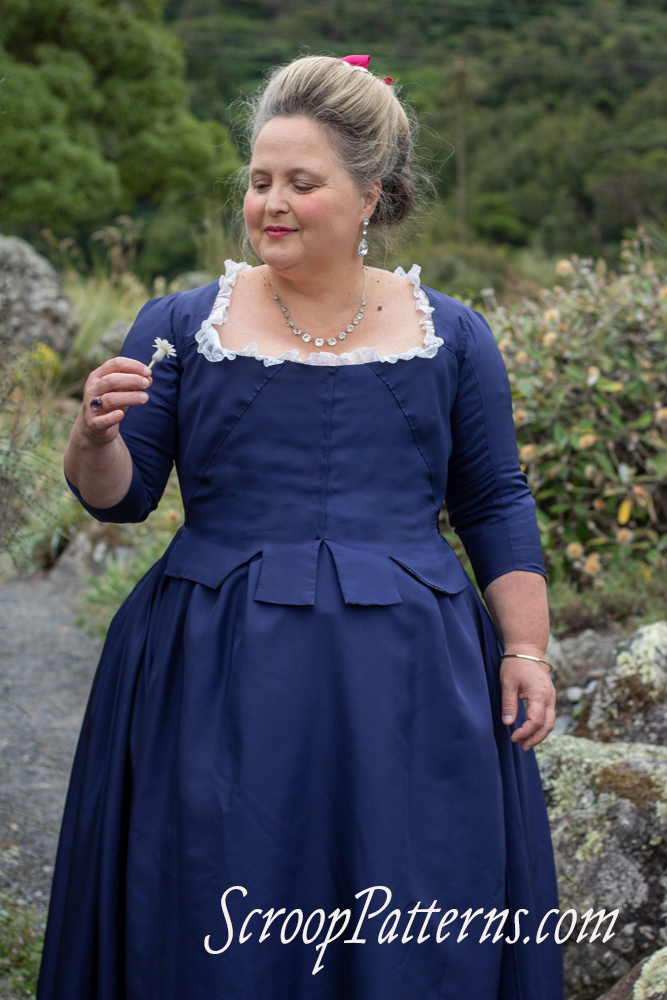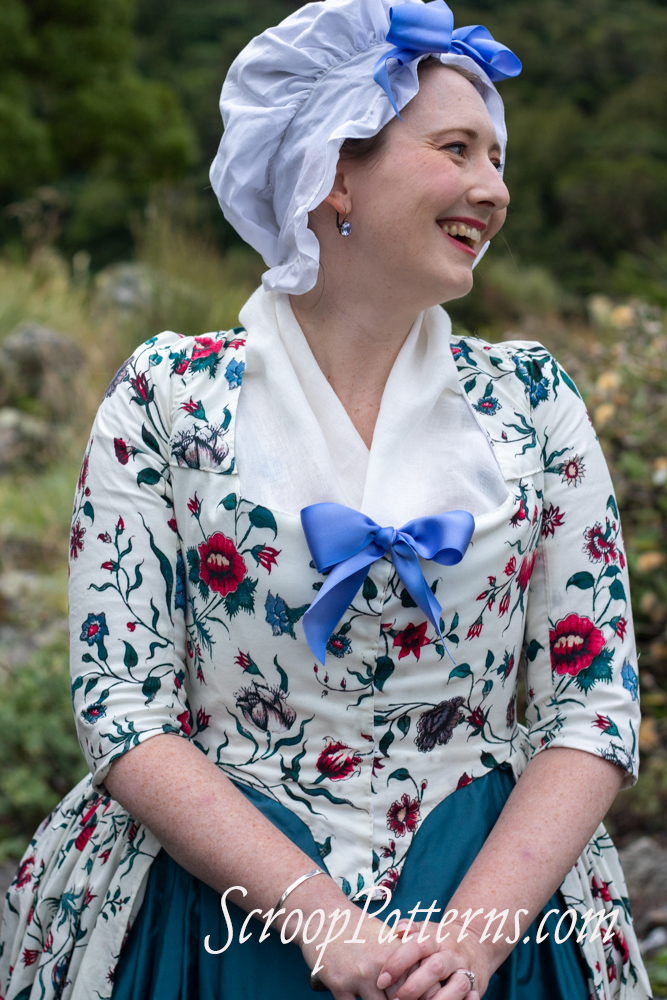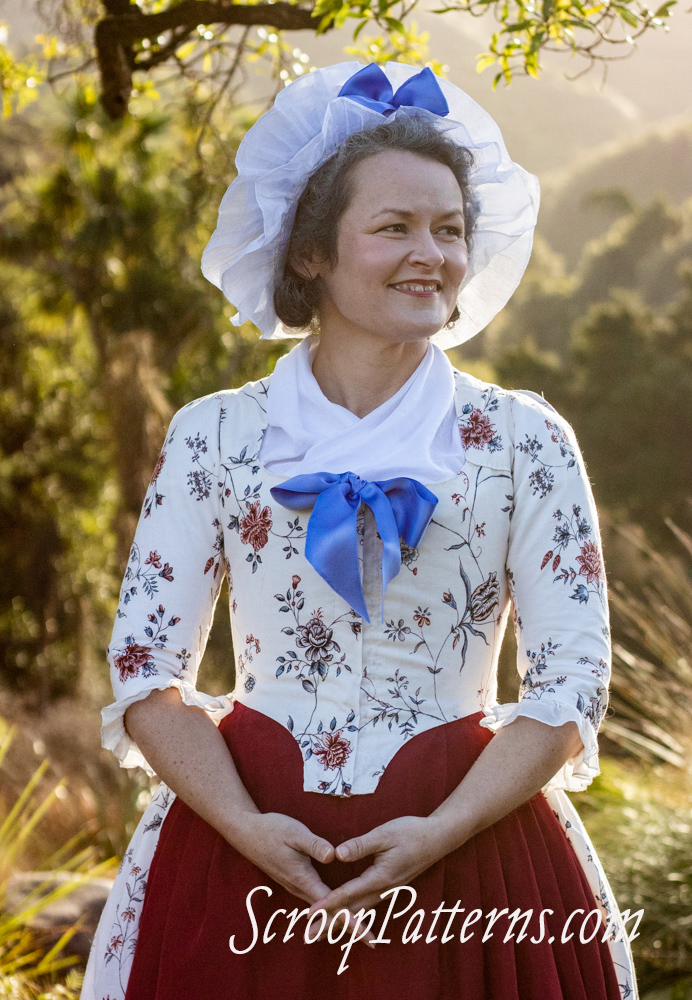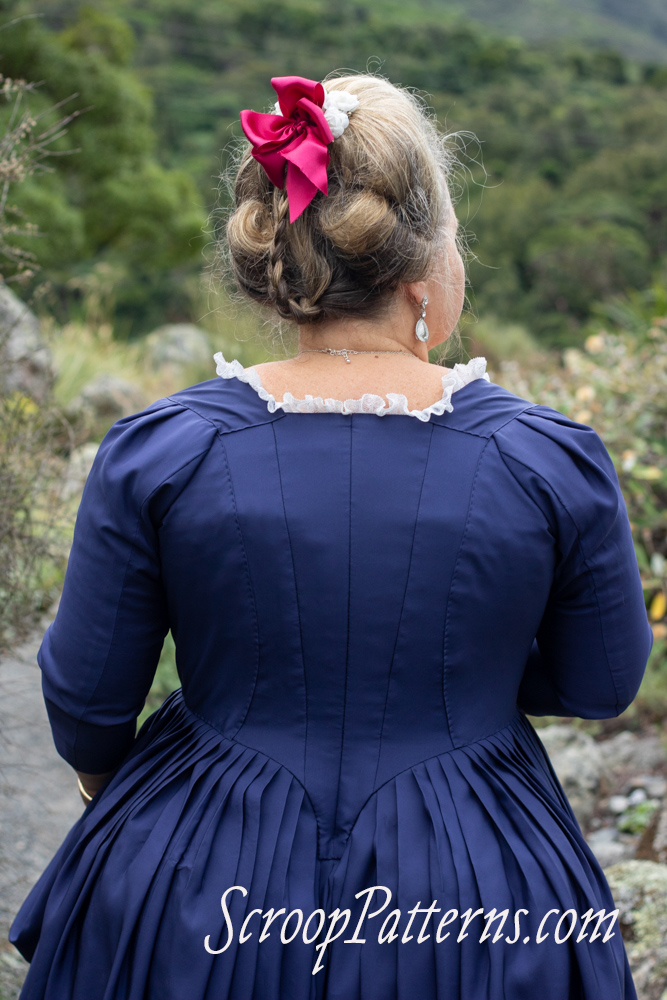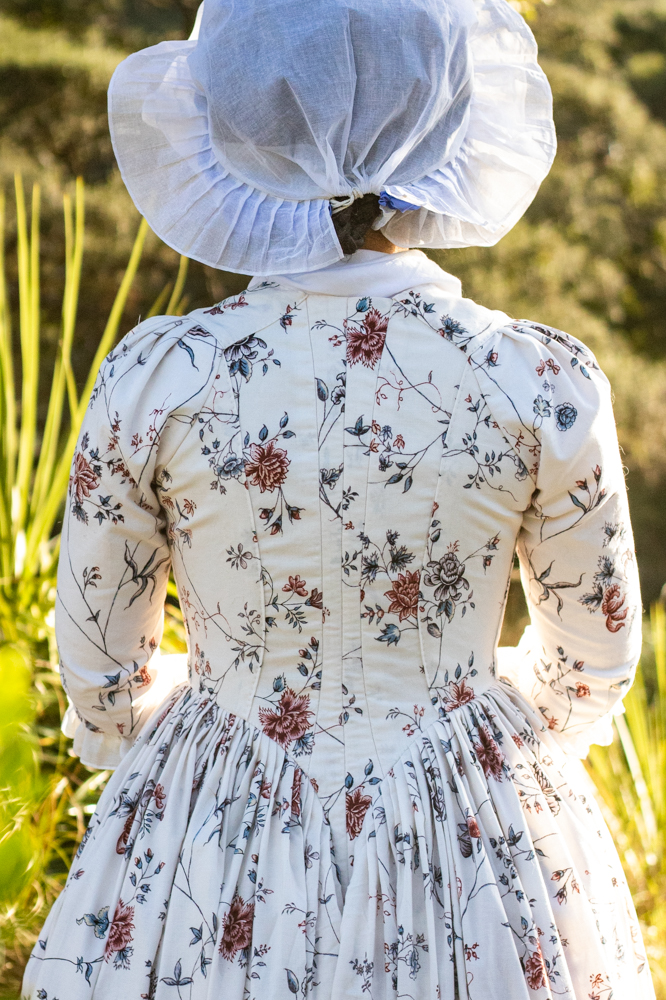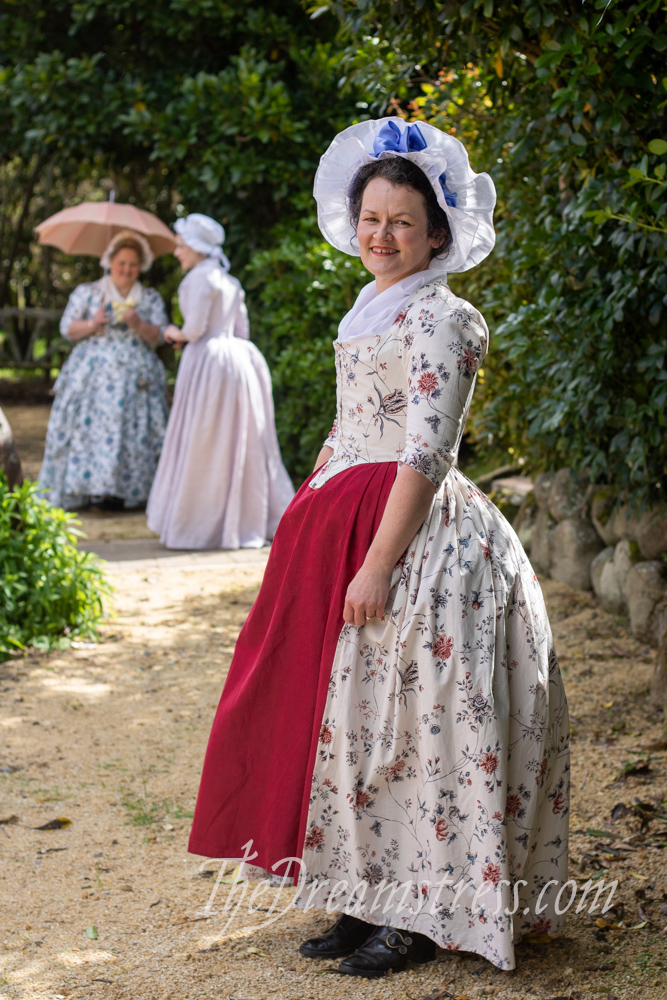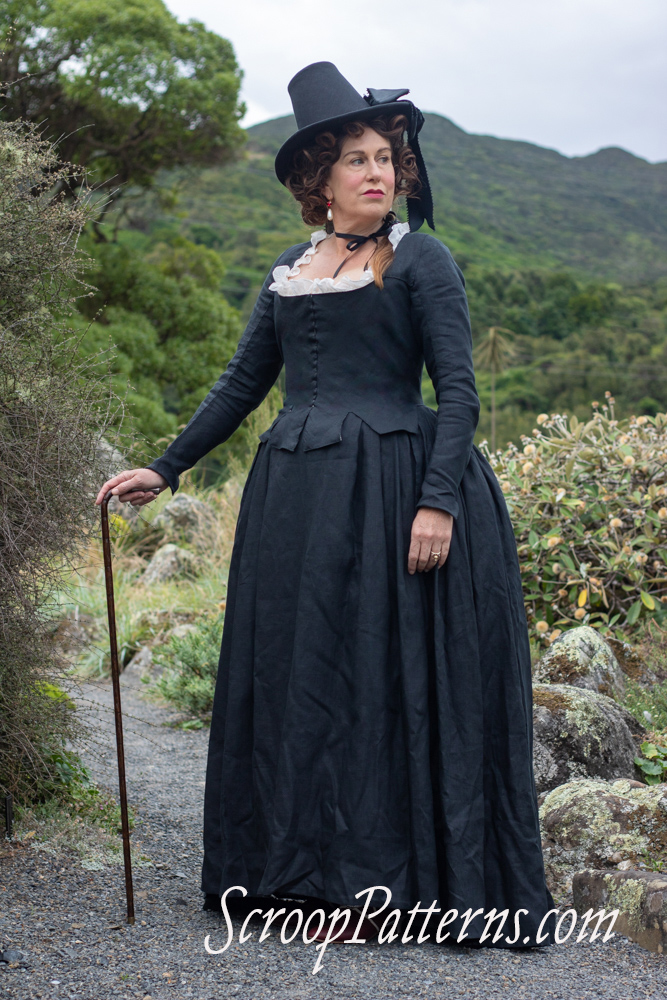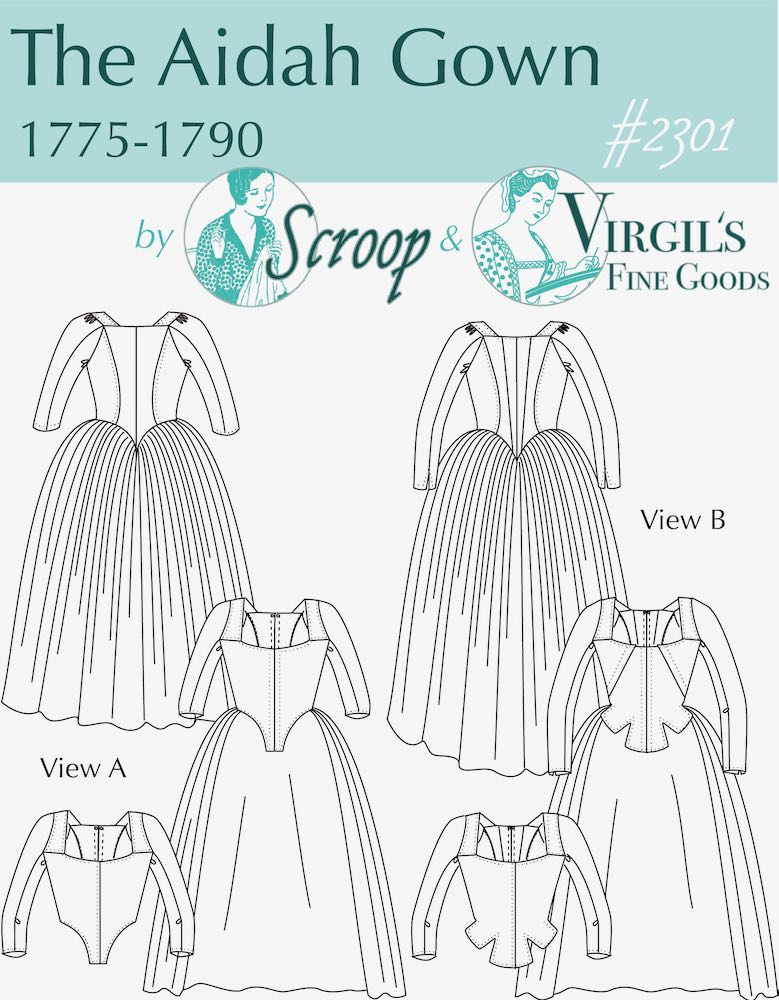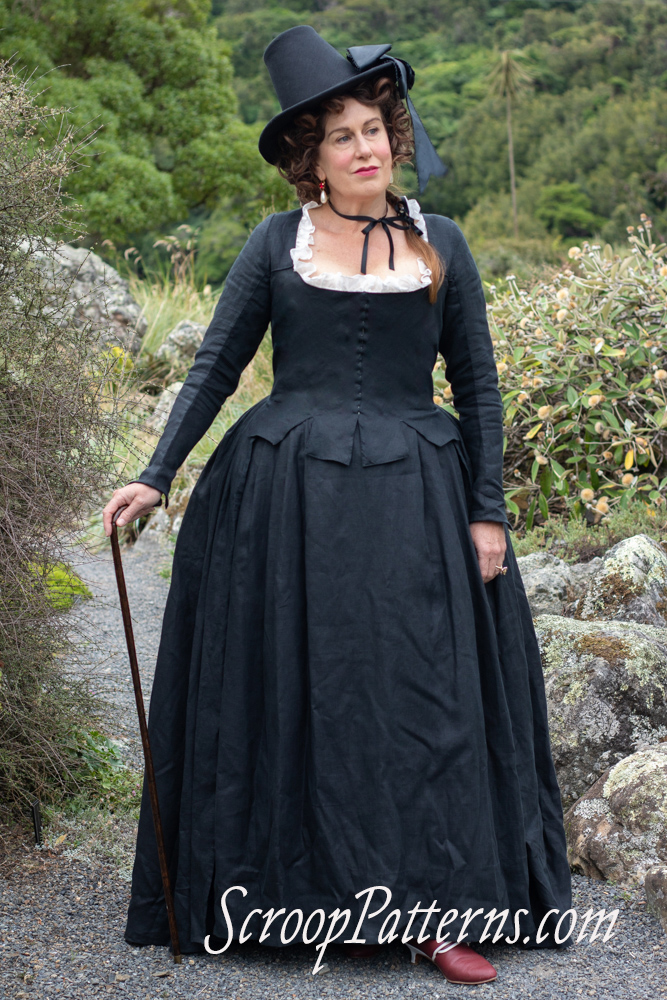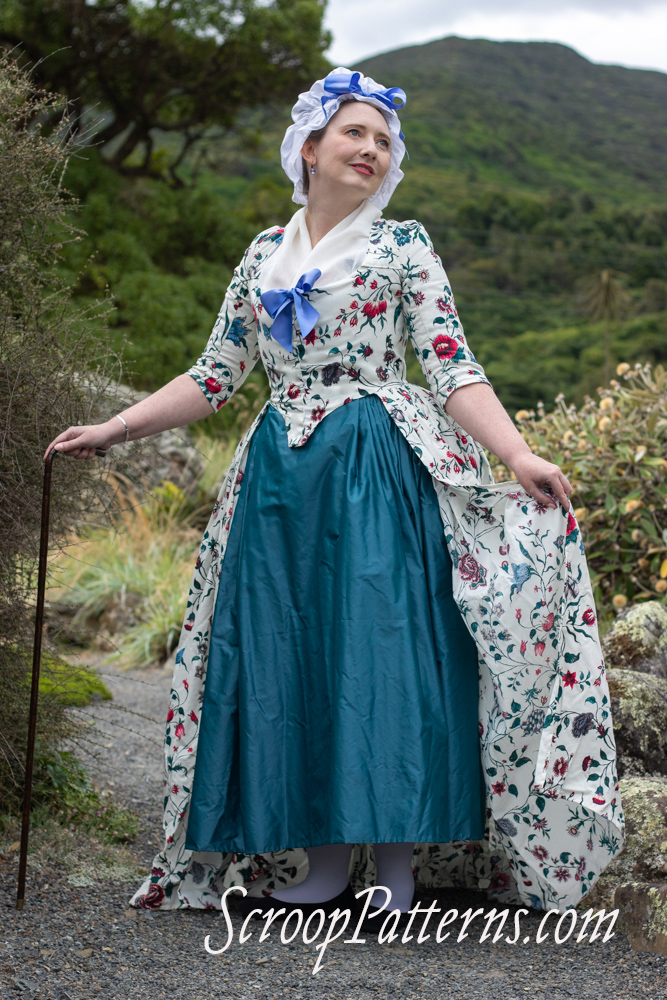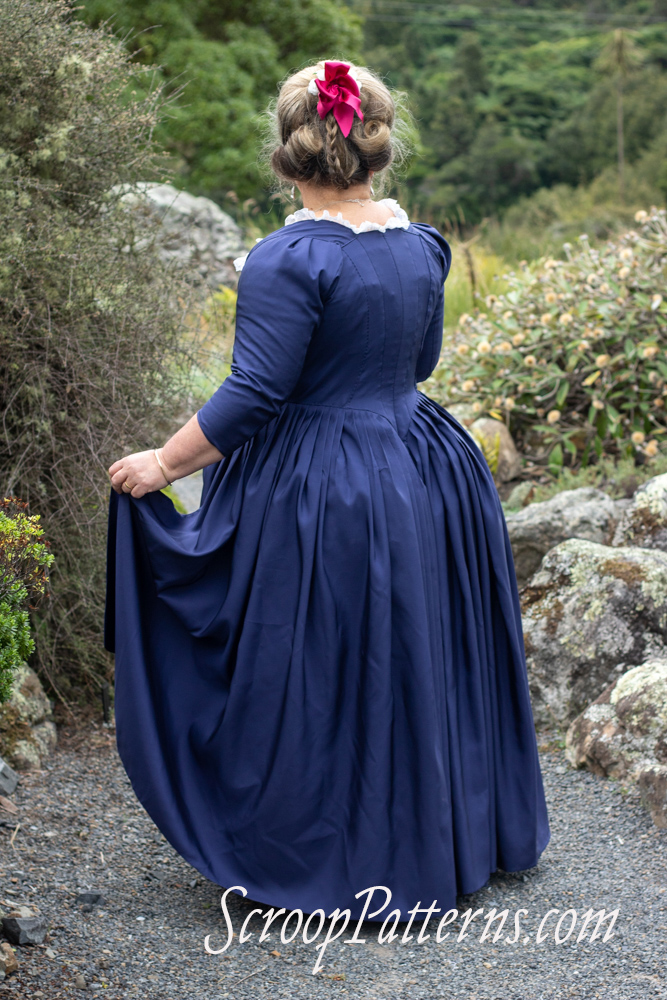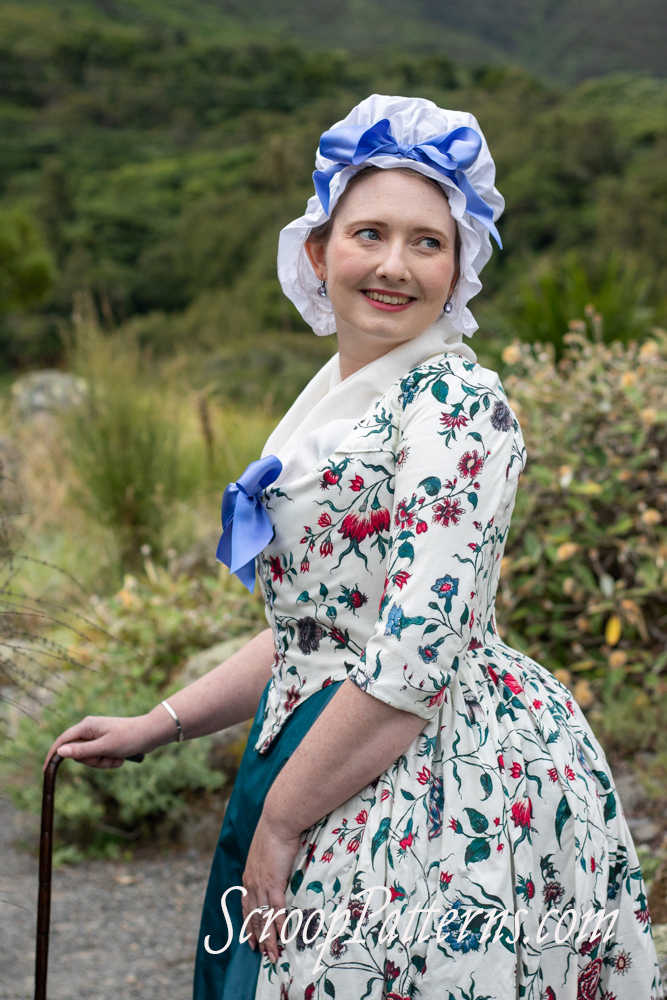It’s the most wonderful part of a pattern launch: time to show off the tester makes!
Everyone loves seeing tester makes, and it’s no wonder: they show what the pattern looks like styled in a whole range of different ways, on a whole range of bodies, in different fabrics. There are always testers who do fabulous things with the pattern that never even occurred to me! So inspirational 💛
Pattern testers also ensure we deliver you the best possible pattern. They ask about instructions that are confusing. They provide feedback on the fit on a whole range of bodies. Based on their input we’re able to smooth off any final rough corners, and adjust the fit to make sure it will work for as many people as possible straight out of the packet – and that we have good fit and alteration guidance for when it doesn’t.
So we are so, so grateful to the people who are willing to pattern test, because their input is invaluable. Thank you so much!
The Aidah Gown testers were fabulous and helpful, and made the most stunning collection of makes. Here they are!
View A:
@Costuming_Drama
Noelle shares the most fun & beautiful historical and cosplay makes (Victorian Iron Man!) on her IG account. She’s made a lovely version of the Scroop + Virgil’s Fine Goods Amalia Jacket pattern too. So we knew she’d provide valuable feedback about our fit consistency – AND make a gorgeous version of the Aidah!
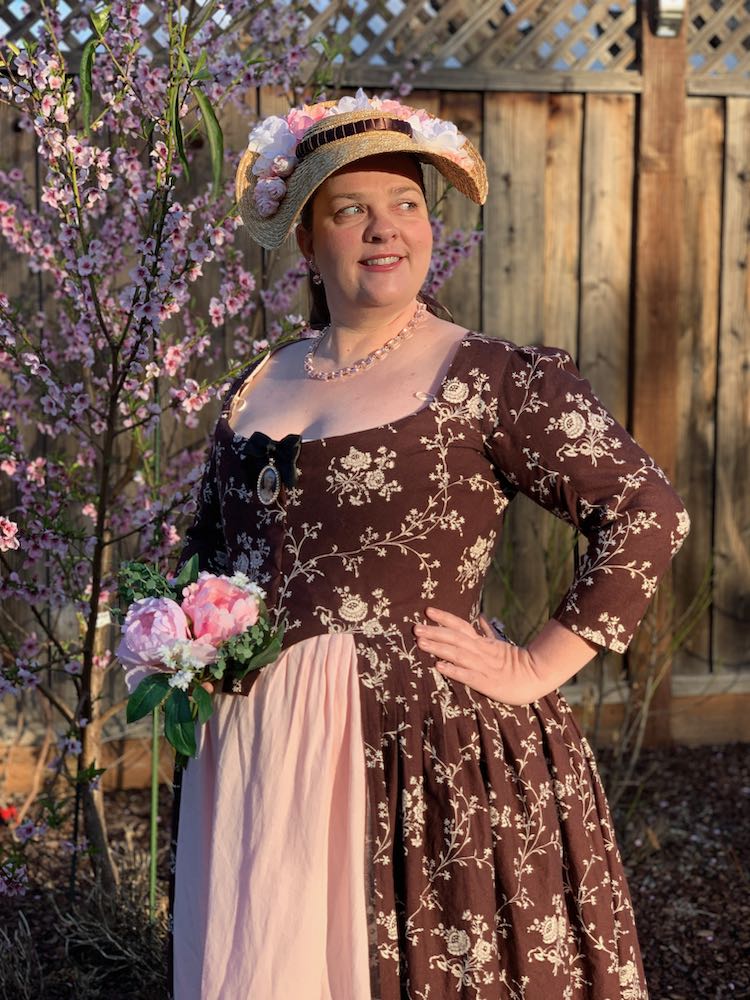
She did indeed, and even picked one of my favourite Colonial Williamsburg reproduction prints for it! Noelle doesn’t know this, but we almost ended up being dress twins, right down to the pink petticoat, but I ended up going with a different fabric for the sample. So when I say she has excellent taste, I really mean it!
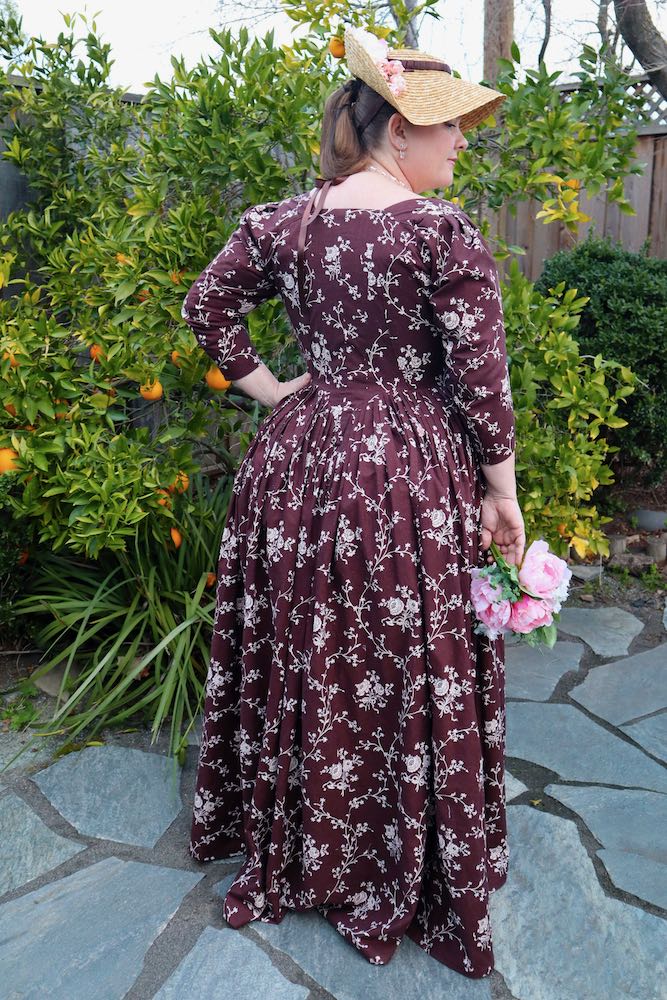
Extra special bonus: you can follow along with her Aidah making journey on her Youtube channel!
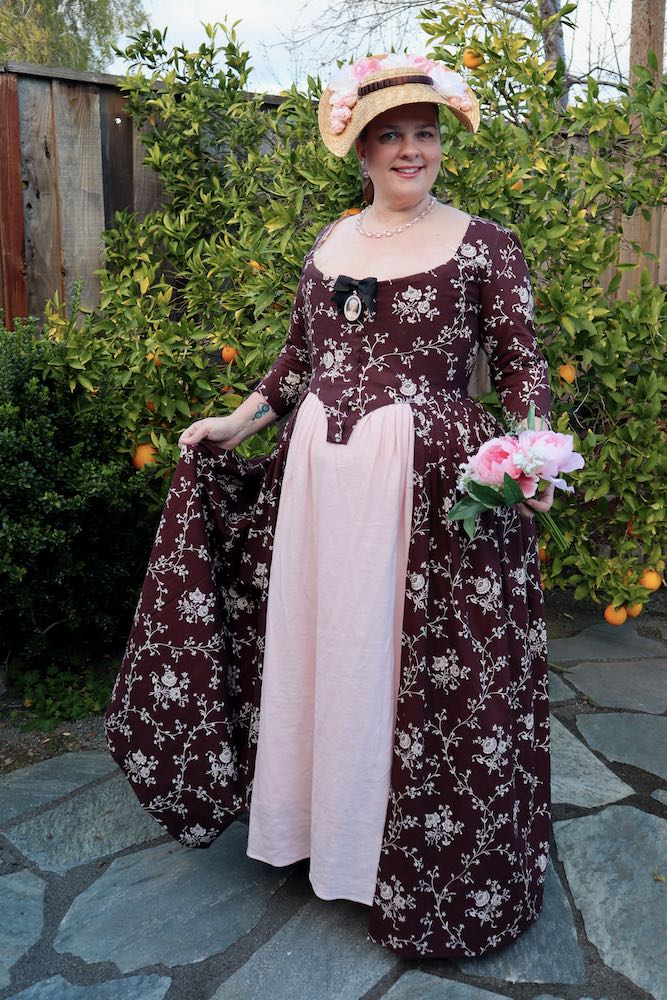
Noelle made a Size 46, with additional length in the bodice. She chose the pinned-front fastening, slight train, and 3/4 length sleeves for her Aidah.
Caitlin @aladyofquality
I adore a good floral and play with stripes, but there’s something about the simplicity of a single coloured fabric that really shows off the gorgeous seaming and style lines of the Aidah Gown.
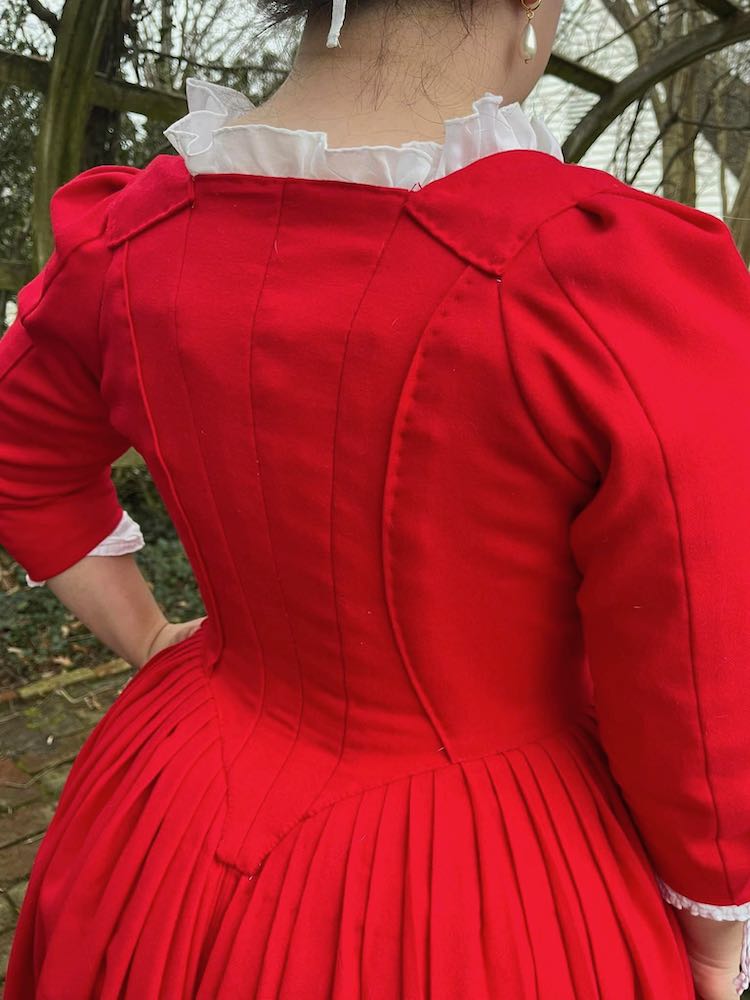
Caitlin utterly fabulous red wool gown is a spectacular example of this. Her back seams are just perfection, and the crisp front and back points are divine. And the colour? It just GLOWS!
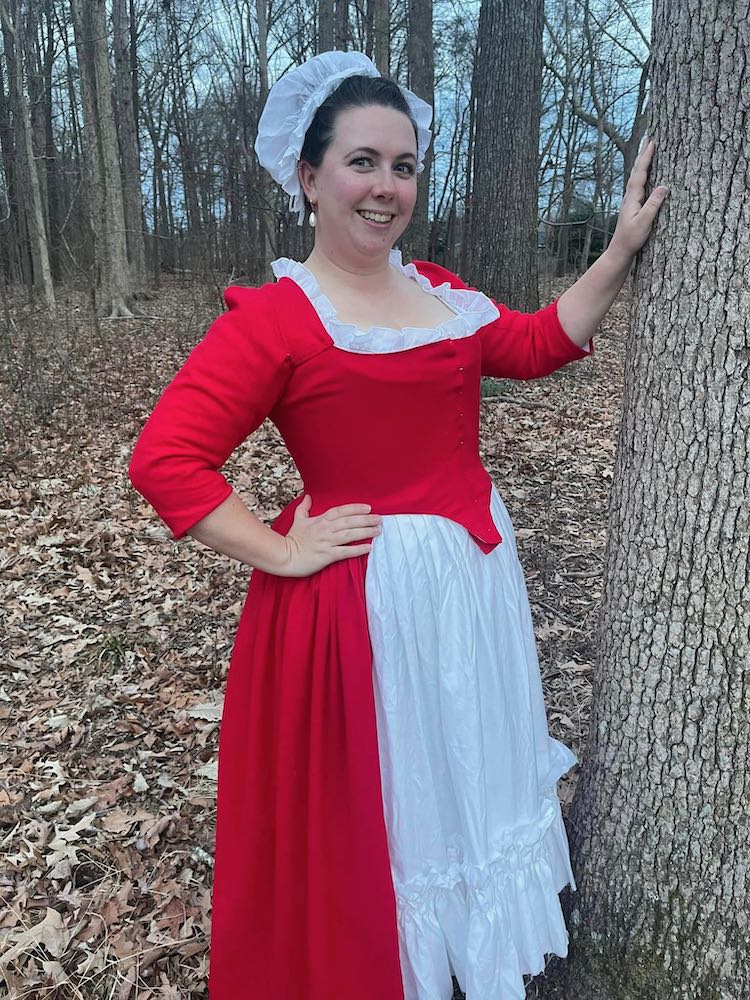
Don’t you love her very wide tucker ruffle, and beautifully ruffled petticoat? And how they pop against the white!

Caitlin sewed a size 42. She used a View B back with the View A front. She chose the floor-length hem, elbow length sleeves, and pinned-front fastening for her Aidah.
Caitlin’s beautiful photos were taken by…
Mem of @starandscissor
Do you know that thing where you’ve seen a fabric and thought it was fine, but didn’t make your heart go pitter-patter, and then someone makes something spectacular out of it, and suddenly you desperately need it?
Yeah, that’s me and this @colonialwmsburg print and the incredibly beautiful View A Aidah Gown Mem with it!
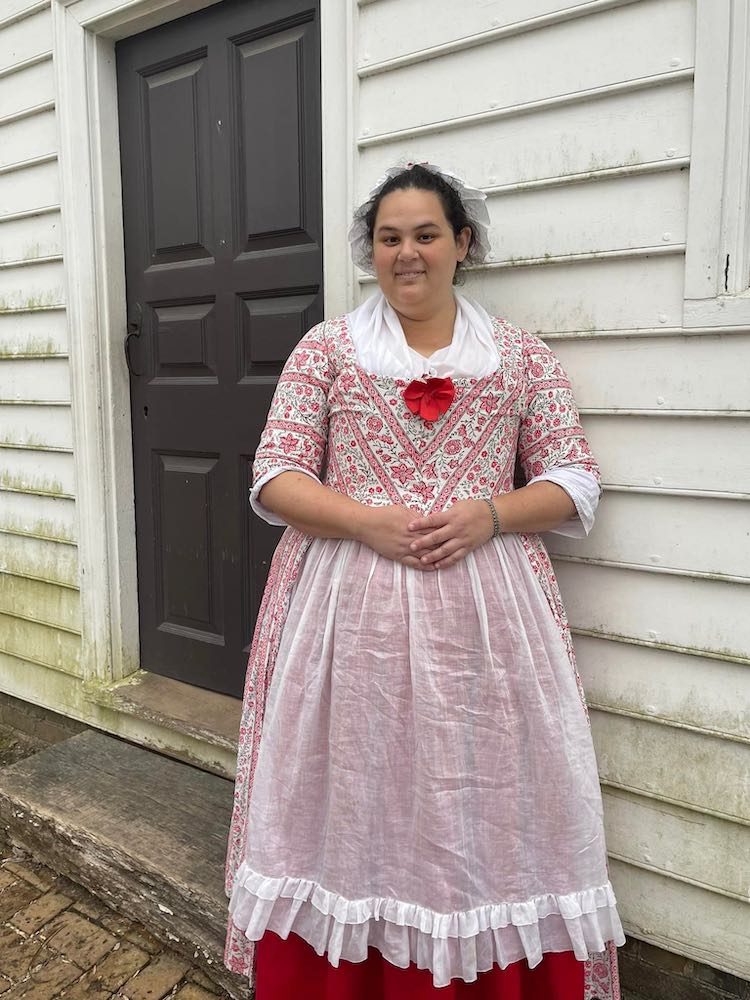
The V the stripes form at the front! The interplay between the bias front stripes, the horizontal sleeve stripes and the vertical back stripes! The way the flowers spiral out at the centre of the back! The way the stripes work with the skirt pleating!
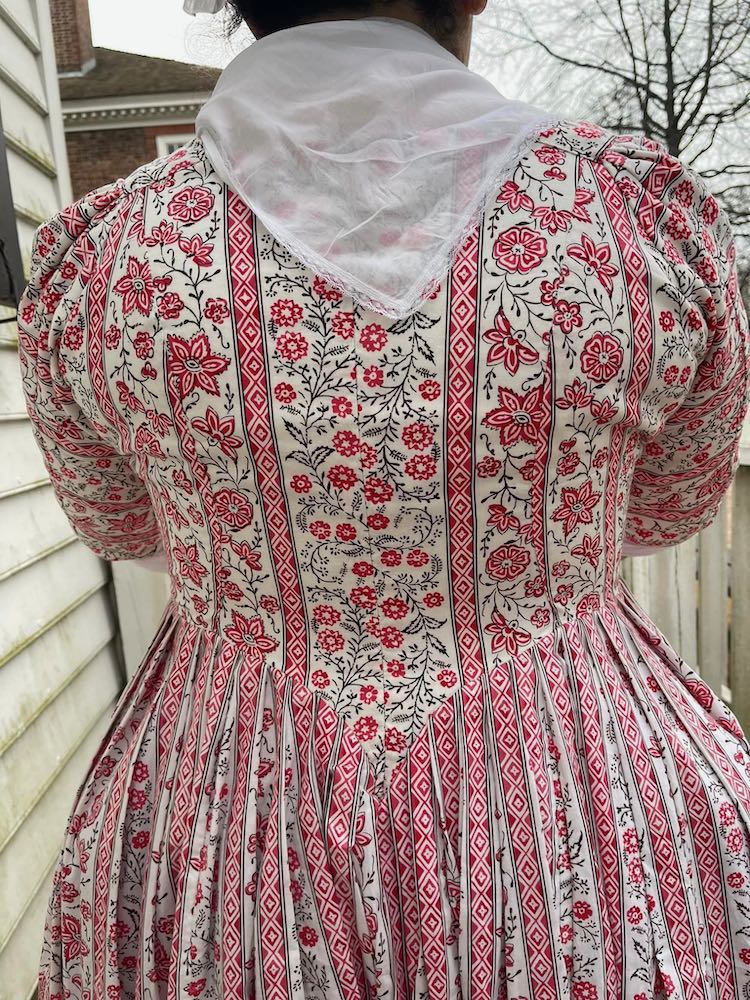
It’s all perfection ❤️❤️❤️
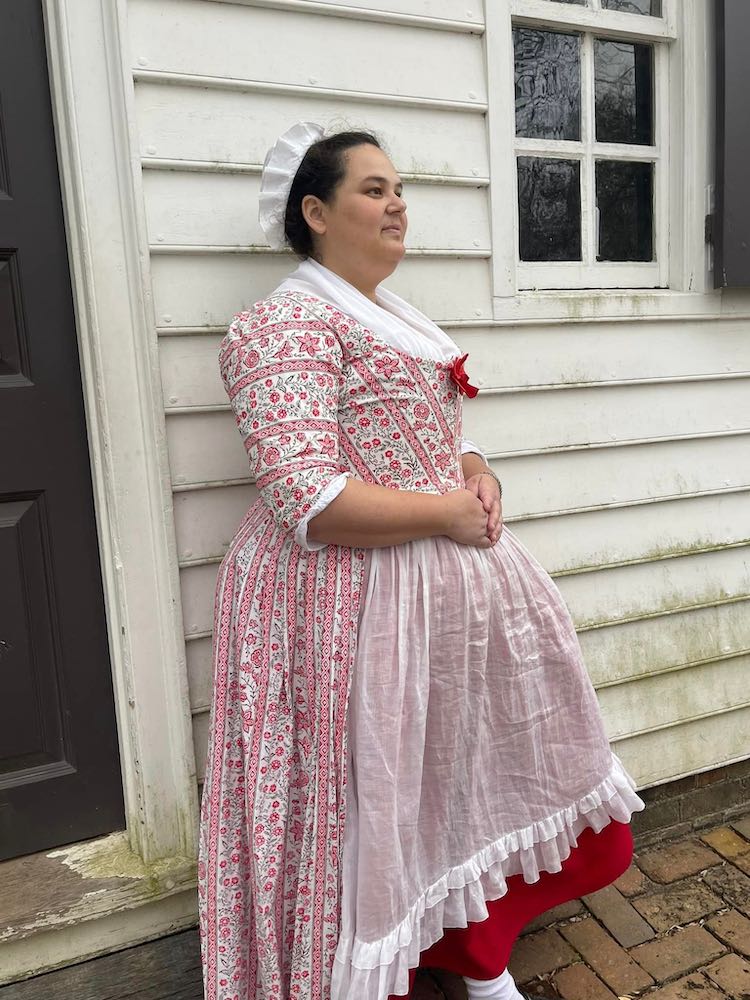
Mem made her Aidah in Size 50, blended down to a 48 in the waist, with Size 52 sleeves. Her sleeves are elbow length, and she chose the pinned front fastening.
Cecilia of @cecilia_theresa_design
Can you say STUNNING?
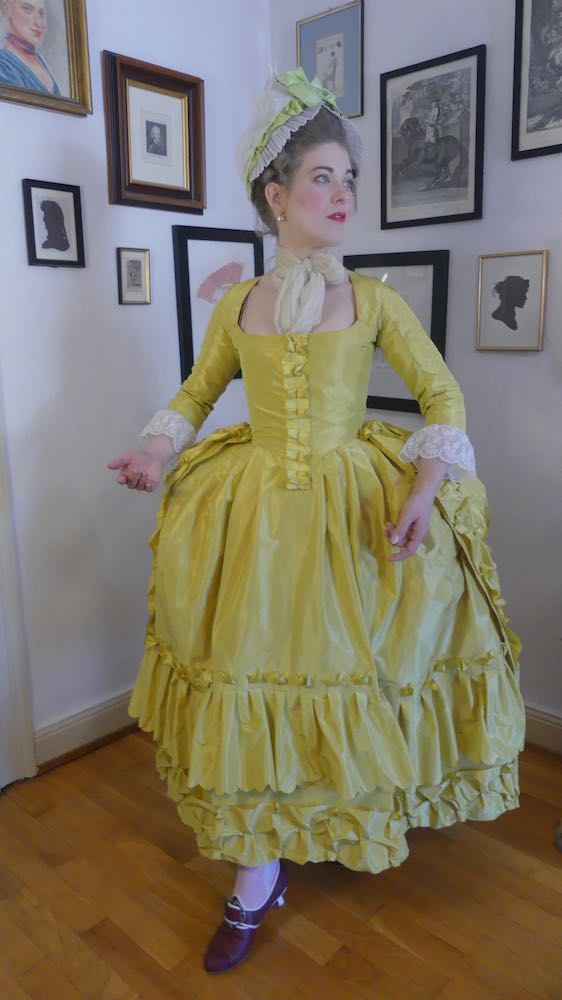
(I mean, obviously I love this, it’s yellow!)
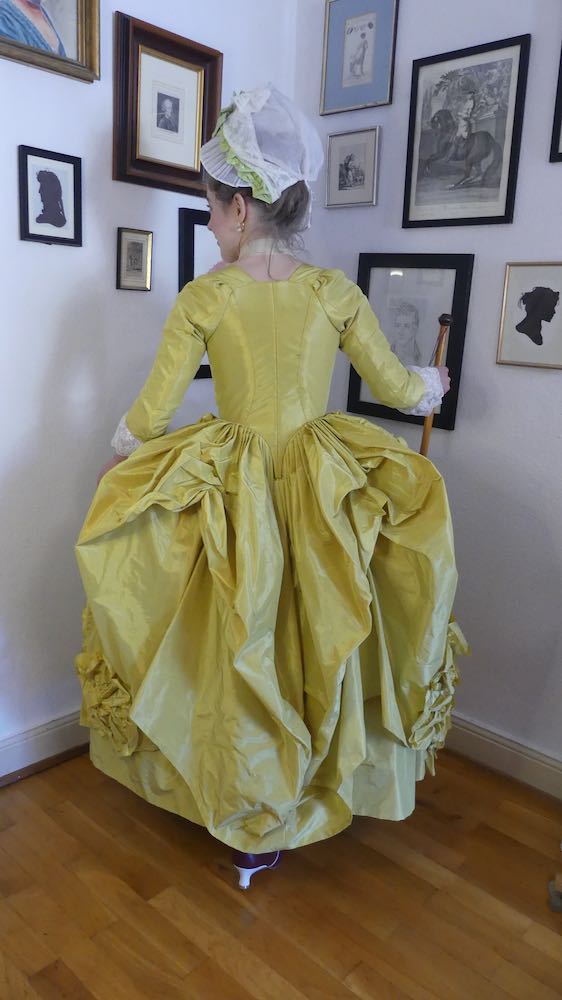
Cecilia trimmed and styled her Aidah for the second half of the 1770s, with taller hair, and pinked and ruffled trims that are just perfection. She also added pick ups to the skirt – something we’ll be showing you how to do as a blog tutorial shortly.
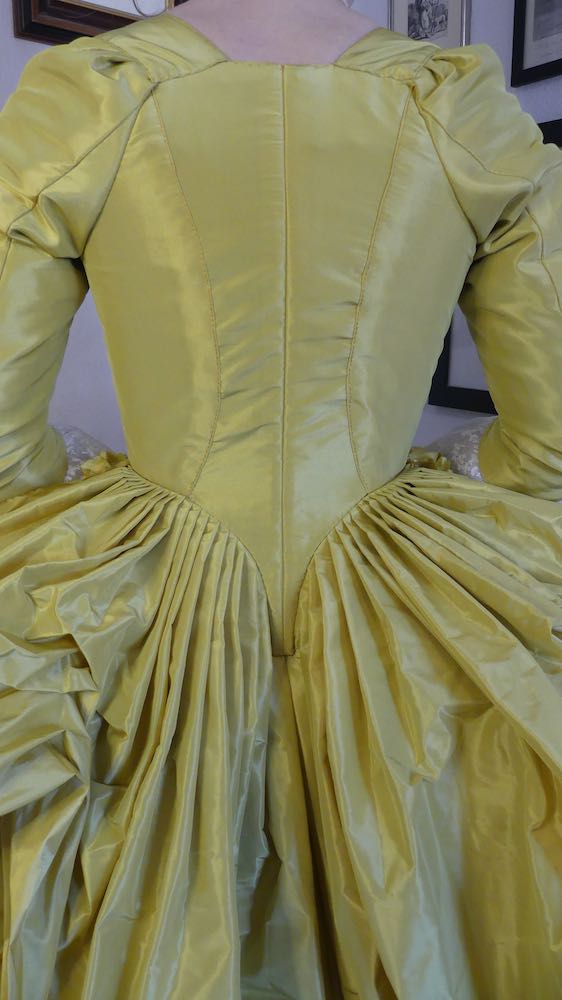 I’m so in love with the whole look, and want one just like it for me!
I’m so in love with the whole look, and want one just like it for me!
Cecilia made a Size 34. She chose elbow length sleeves.
Carissa of @carissawakefield
Carissa is another tester who mashed up the pattern views, pairing a View A front with a View B back.

The end effect is lovely, and makes full use of her beautiful floral fabric.
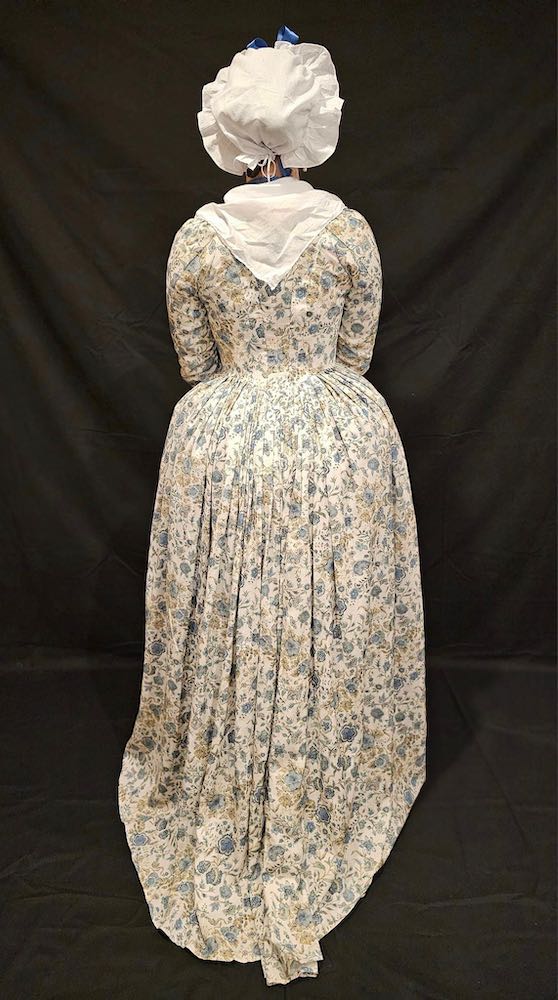
Be sure to check out her instagram for lots of gorgeous detail photos of the dress!
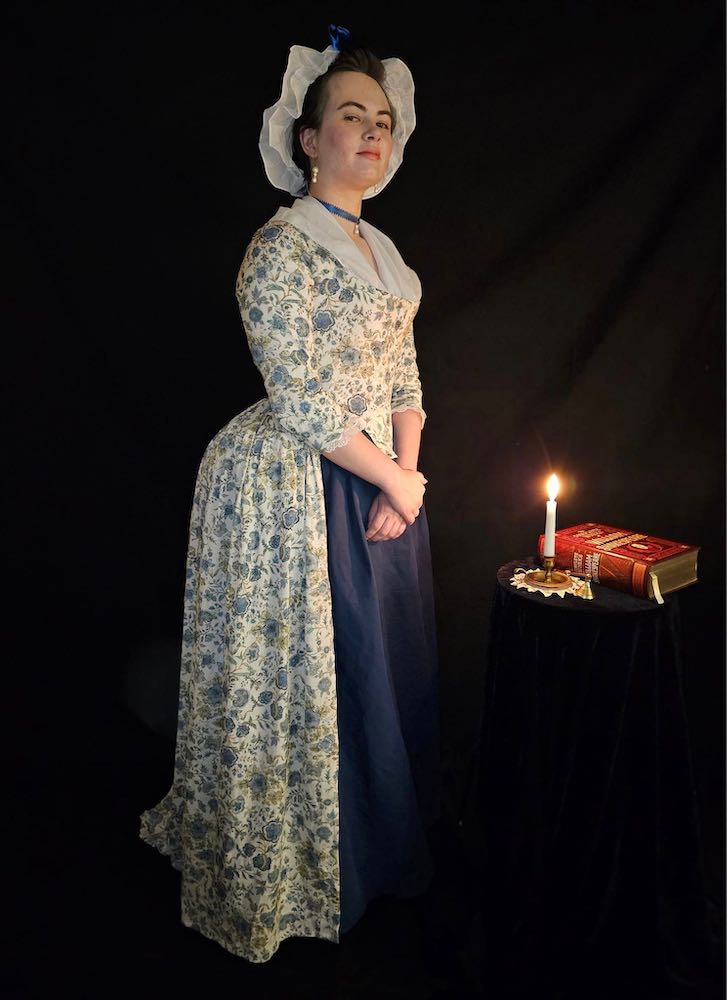
Carissa sewed a size 36, graded down to just under a 34 in the waist. She chose 3/4 length sleeves, and the trained version.
View B
Anett of @anettveg
Anett made the most gorgeous View B without the cutaway front – and took the most fabulous, fun photos of it!
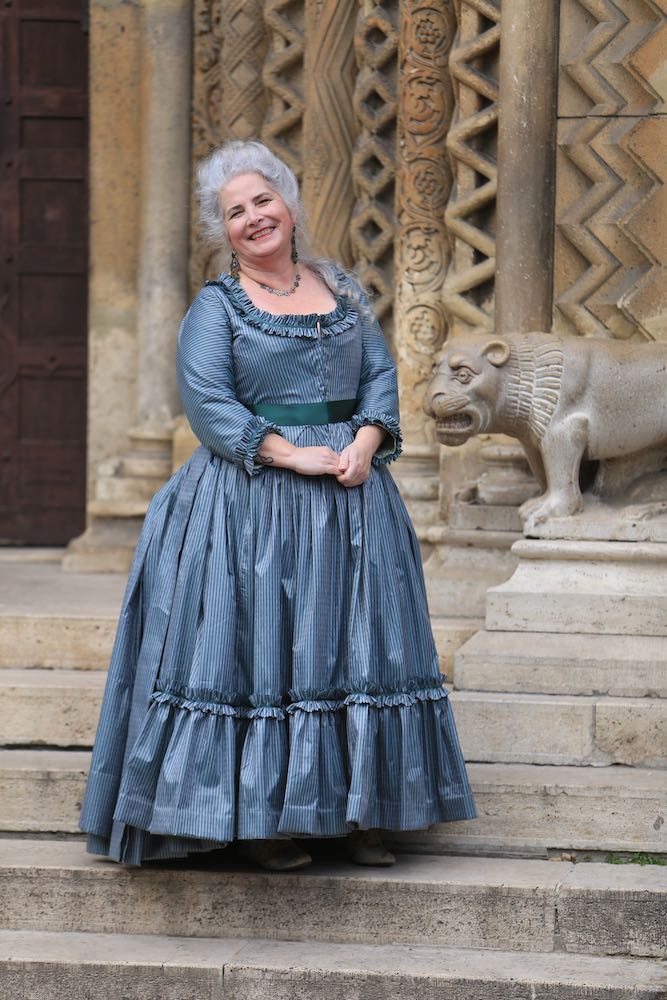
There’s a hot air balloon! And spinning!
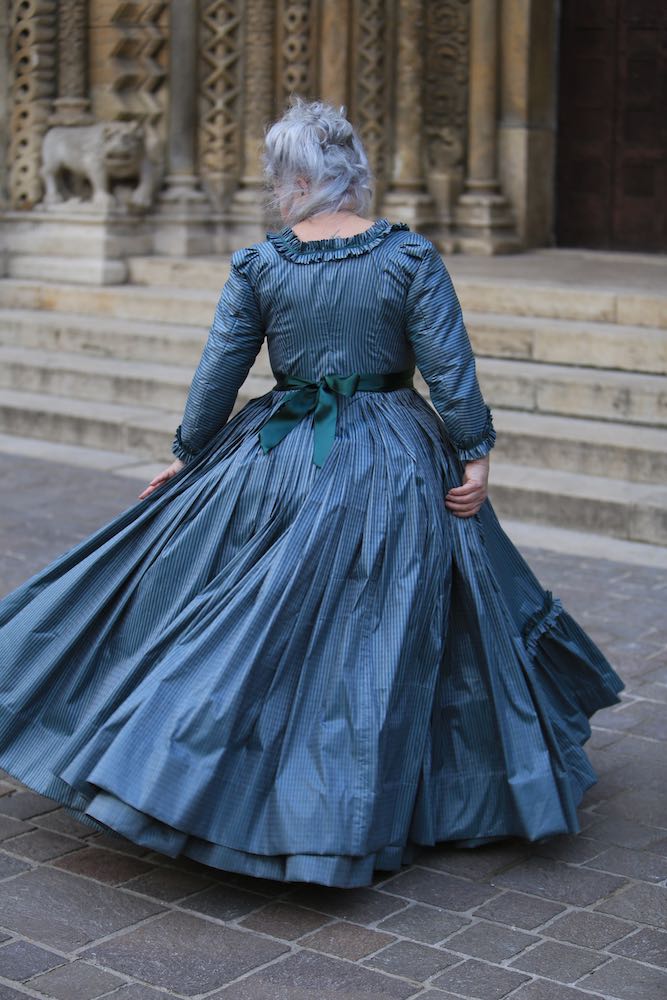
Anett was a wonderfully helpful tester, and even changed her making plans to help us test a view that we needed coverage for. She’s also planning to make an Aidah in pink striped fabric, like our primary View B inspiration garment…

Annet made a Size 44 with 3/4 length sleeves, with no train.
Blair of @goodwiveslinens
Blair has tested Scroop + Virgils Fine Goods patterns before, and we know she’s a wonderful pattern tester: detailed and thorough, and not afraid to tell us about things that didn’t work for her.
So we always love having her be part of a test group, and when she told us what she wanted to do as an Aidah Gown test make, we knew we had to include her!
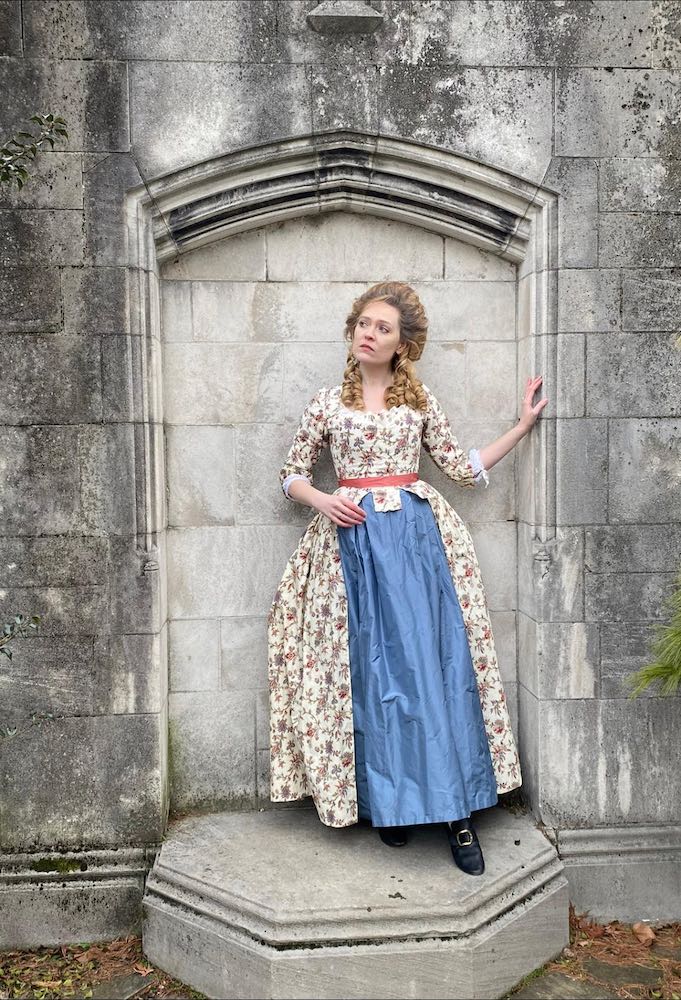
What did she want to do? Re-make her Aidah from one of her first 18th century gowns, made back in 2010!
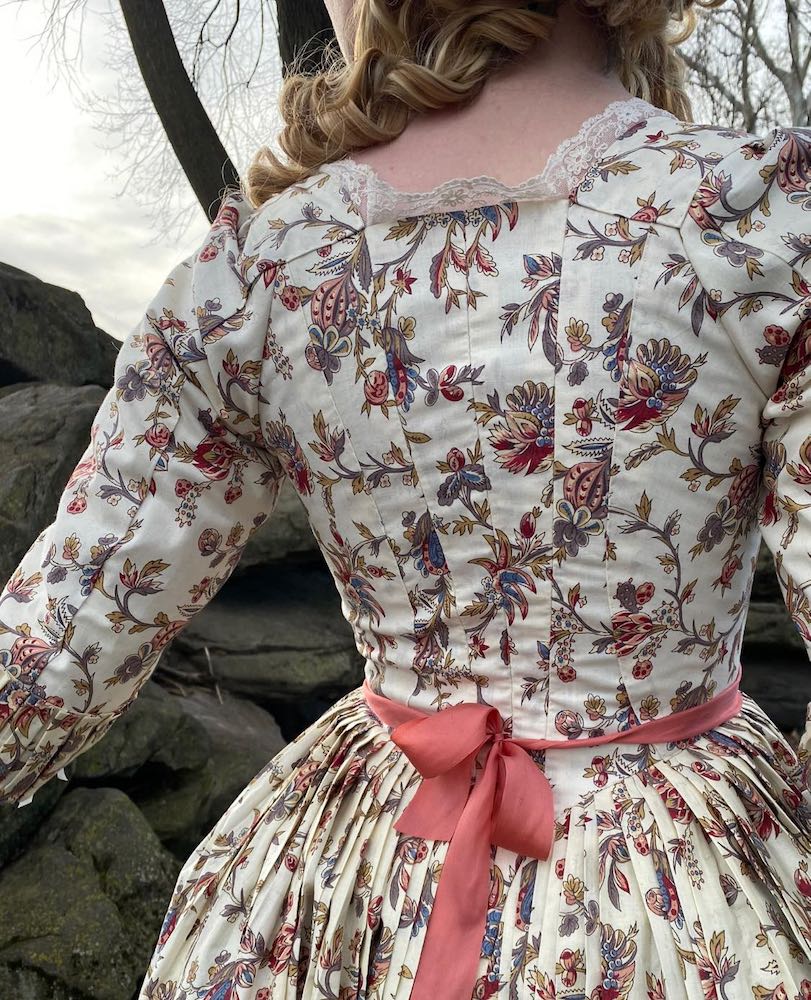
I think you can easily see that the re-make has been a resounding success – it fits beautifully, looks absolutely charming, and is perfectly 18th century both in its styling, and in its philosophy! It makes me so happy that we were part of the journey of this beloved gown, keeping it wearable for (hopefully) another 12+ years!
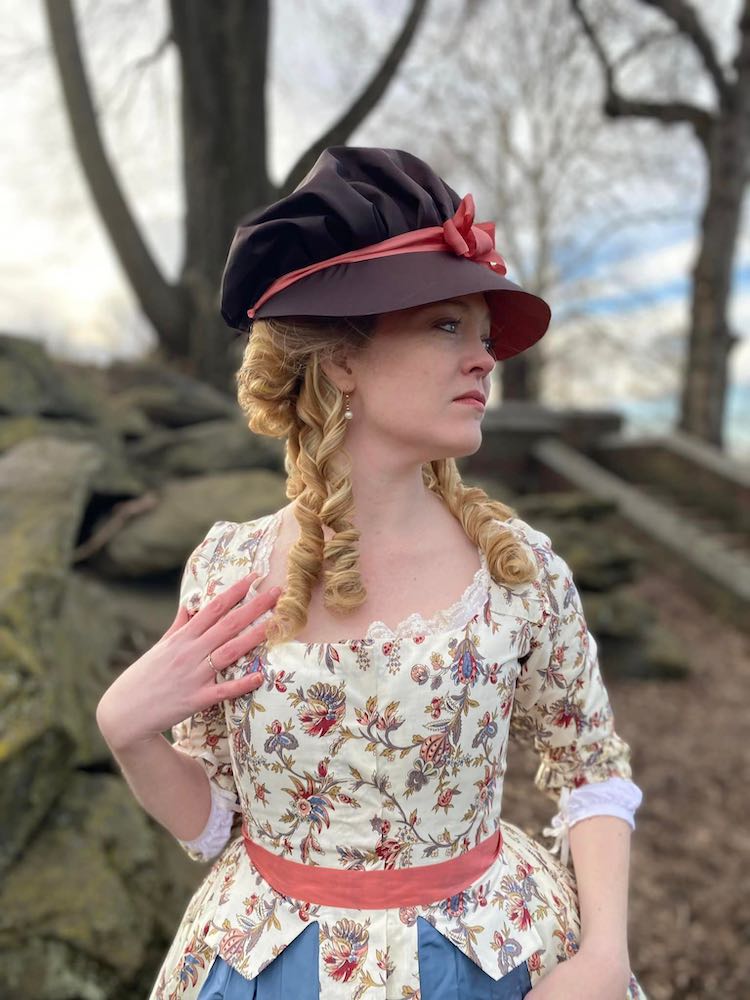
She also did another very cool thing – mashing the Aidah gown up with the Angelica Gown laced front. It’s just another example of how the two patterns can be used together. Check out her reels to see the whole making process.
Blair made a Size 38 View B without the cutaway front and with elbow length sleeves. Her fabric is from Den haan Wagenmakers, and her hat is a pattern she’s just released!
Erika of @chesapeakecostuming
Erika had a little delay with her photoshoot, so we only get to see in-progress photos so far – but those are very interesting too! Look at all that pretty pleating…
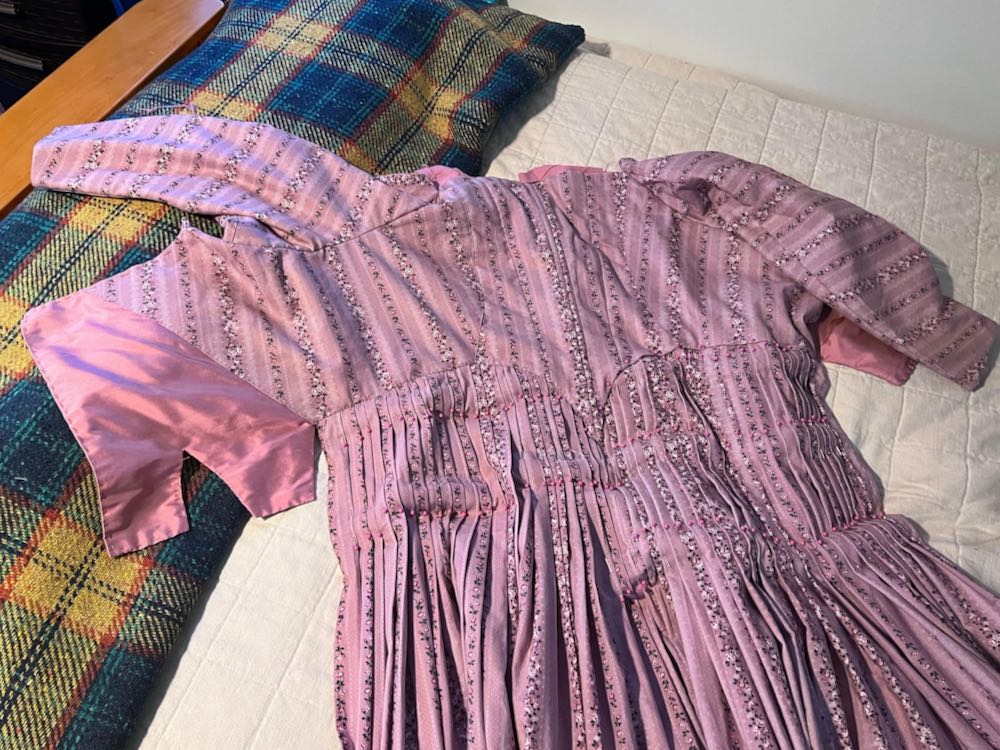
Her gown has the sweetest story. It’s a inspired by the very first historical costume her mother made her.
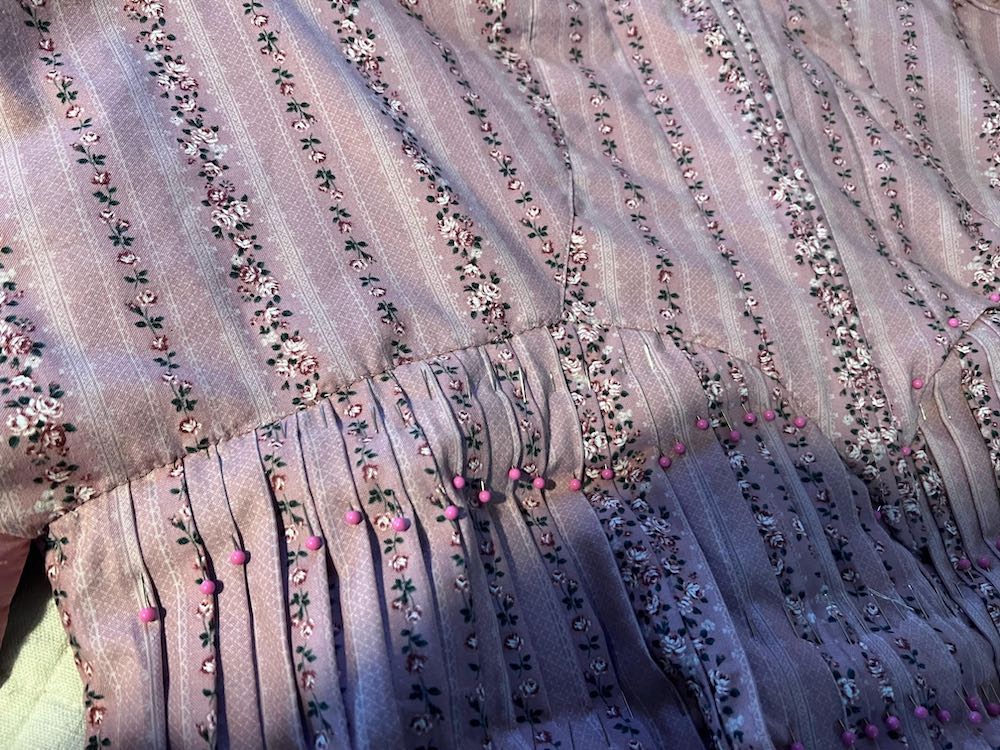
Isn’t that the sweetest thing ever?
Erika made View B with the cutaway front in size 50 chest, 44 waist, 44 sleeve.
Lucy of @sewsanah
This may not be what she intended, but there’s something very fairytale-esque about Lucy’s Aidah. It’s almost 1780s Sleeping Beauty, with the pink petticoat and the floral print like climbing roses.

I have a huge soft spot for Sleeping Beauty because of Robin McKinley’s Spindle’s End, and I can definitely imagine Peony in this!

Lucy made a Size 30. She chose the cutaway front and long sleeves for her Aidah. She also chose to cut her tabs so they are almost twice as long as the pattern, for a very dramatic silhouette.
Dee of @the_needle_woman
Dee originally had a different fabric picked out for her Aidah, but went for this lovely pastel striped cotton at the last minute, as she felt it would be perfect for a Georgian pastoralism – and the sweltering summer we’ve been having down in the Southern Hemisphere.
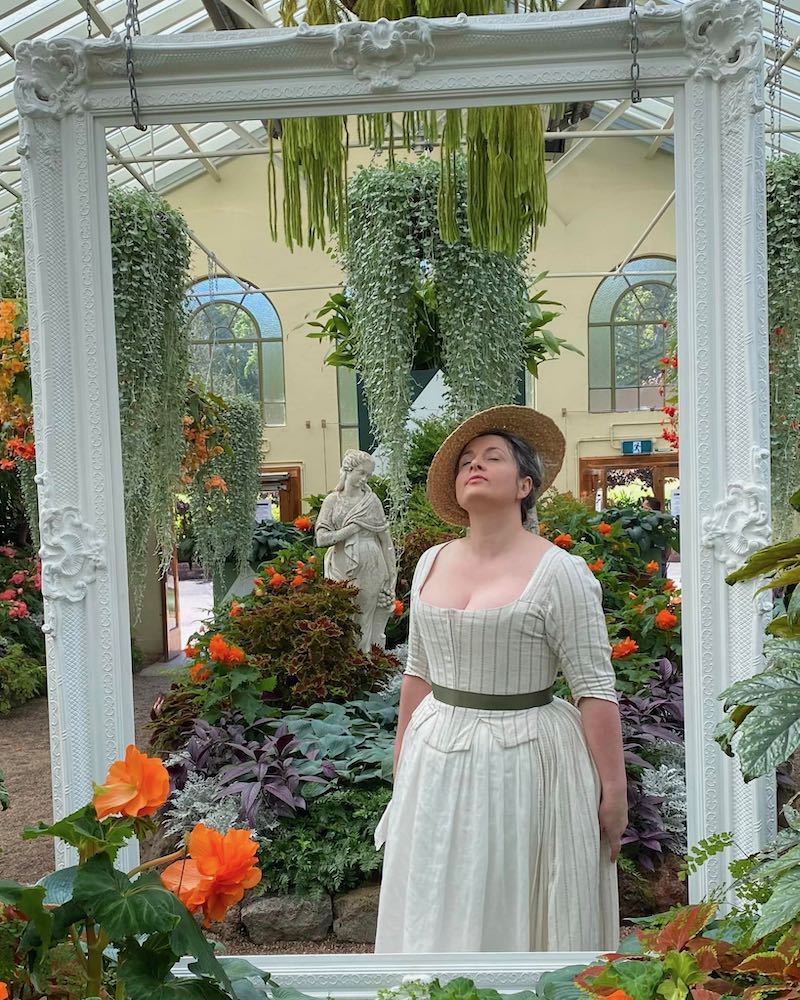
She’s absolutely right! I feel cool just looking at the photos of her. The delicate shade is so light and refreshing, and the stripes add just enough interest to the gown, and highlight the slight V at the centre front of the bodice.
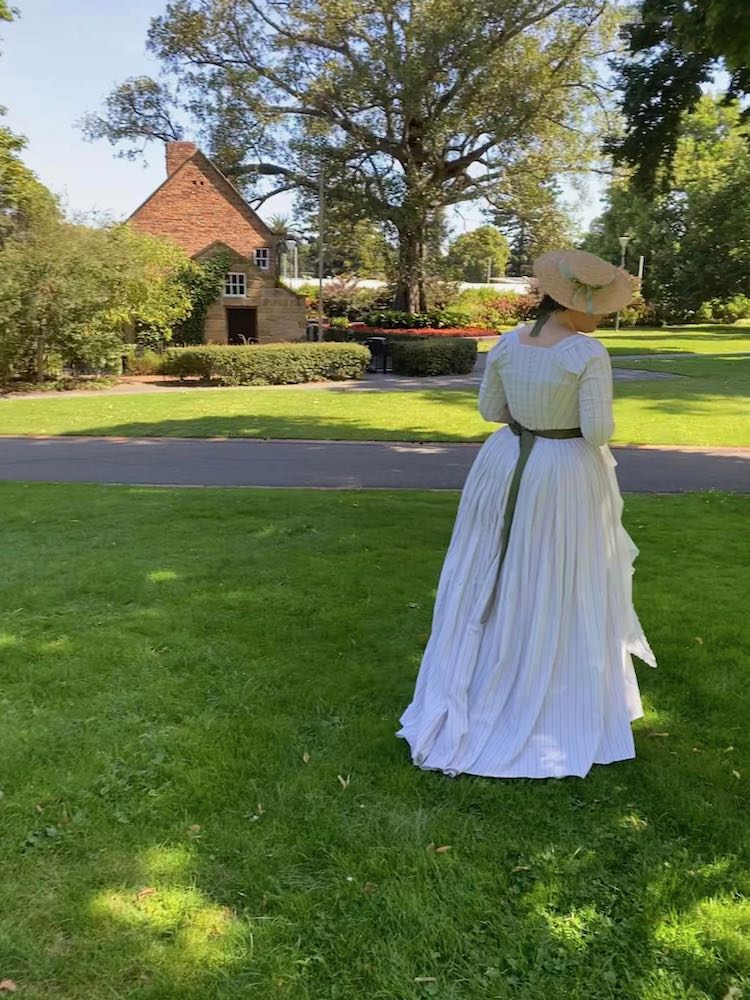
I particularly love Dee’s photos, because they are actually somewhere I’ve been! Dee took her photos in the the Fitzroy Gardens in Melbourne at the 1755 cottage owned by Captain Cook’s parents. The cottage was disassembled and brought to Australia in pieces in the 1930s and reassembled in the gardens. They even took cuttings from the ivy growing on the house in England and planted them! It’s slightly bonkers, but does mean we can visit an 18th century English house in a city that didn’t exist when the house was built.
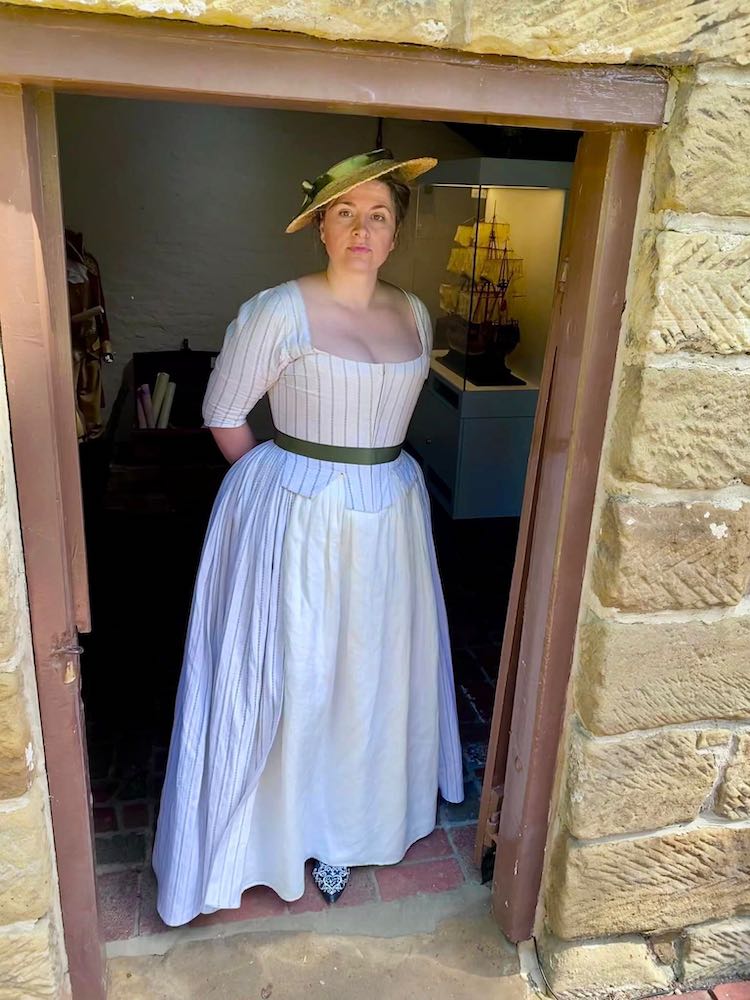
Dee made a View B without cutaway matched with a View A back, with elbow length sleeves. Her Aidah is Size 44 bust, 40 waist, 42 sleeves
Gorgeous, all of them! A huge thank you to these testers for all their work and feedback.

